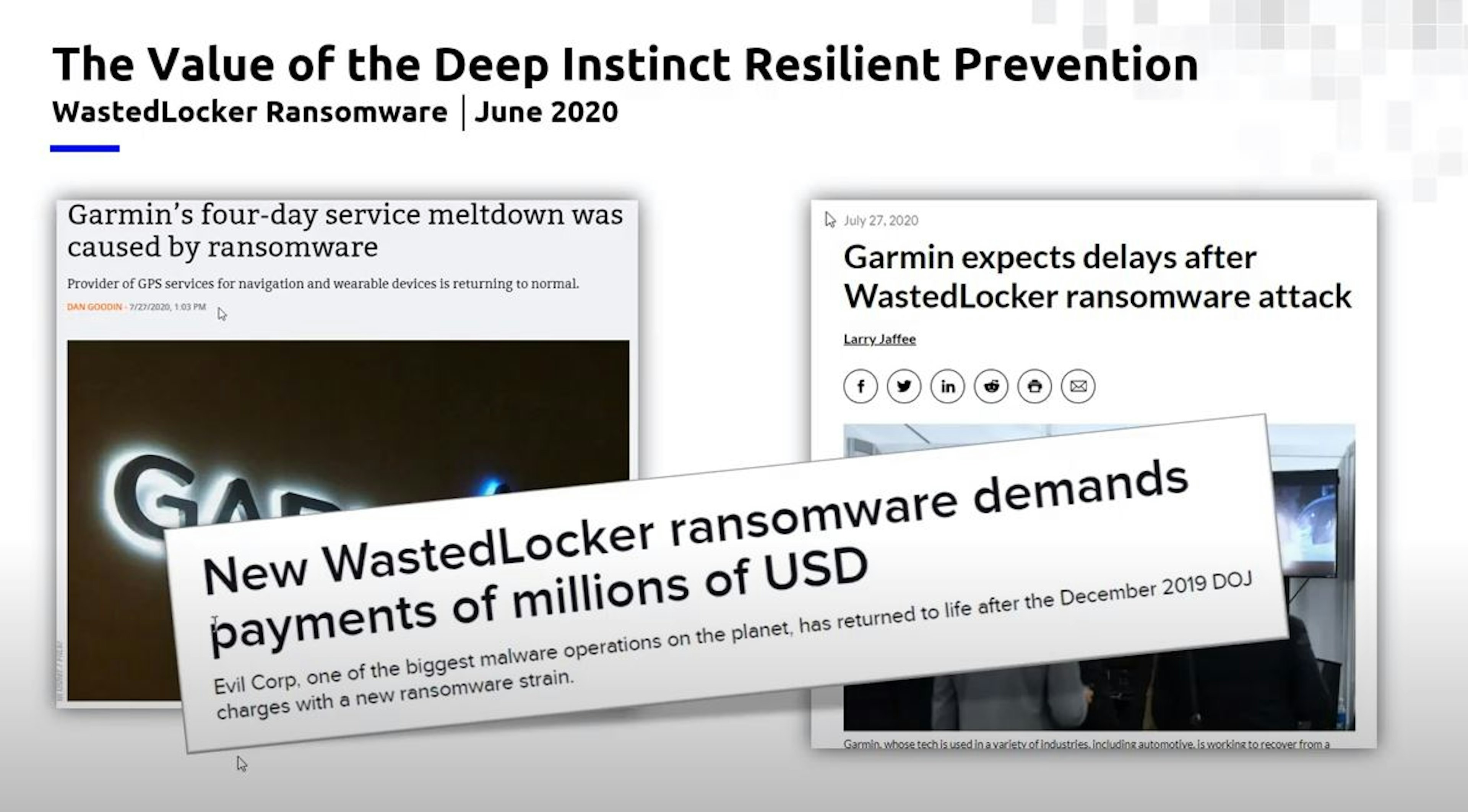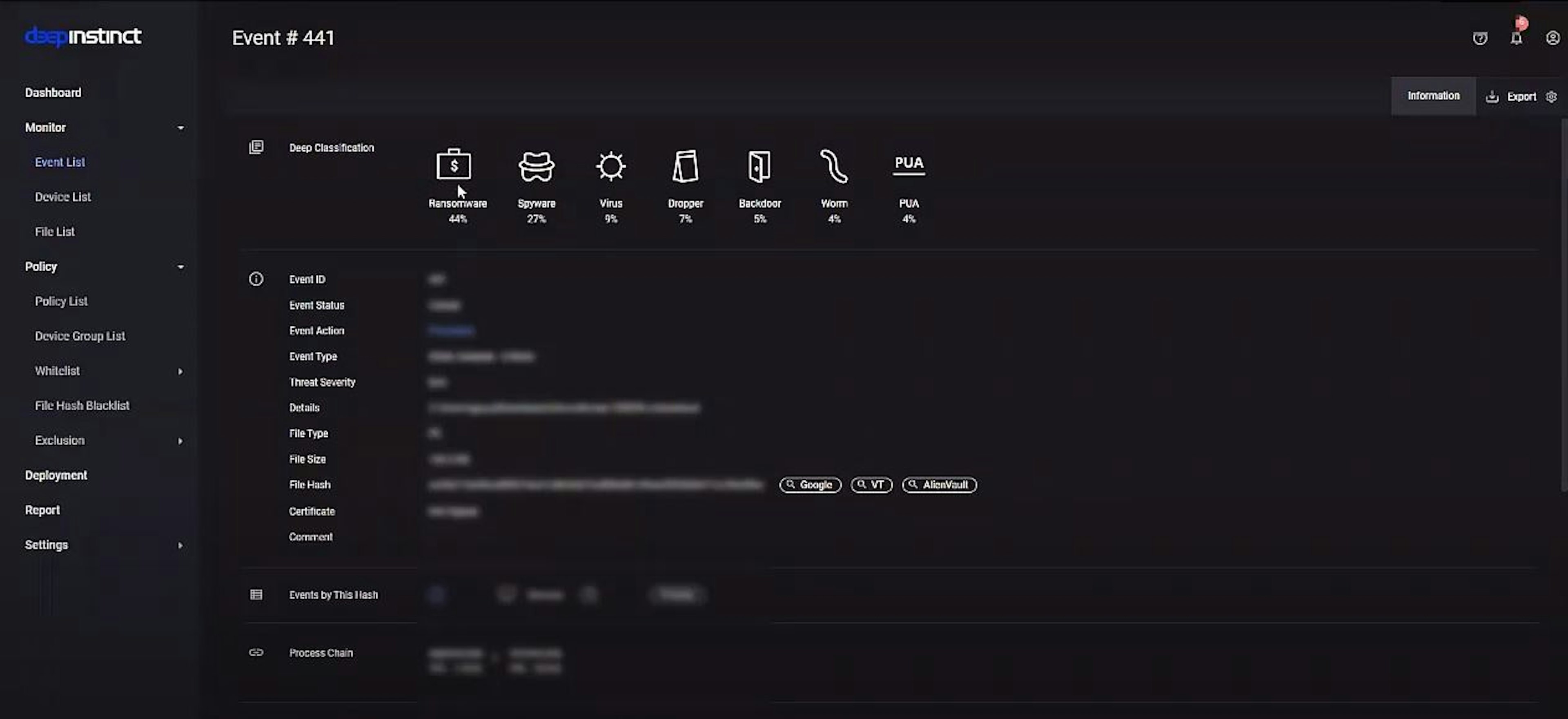Fileless Attacks on the Rise.
Prevent Fileless Malware.
Fileless malware uses legitimate programs to infect systems, leaving no footprint, and making it challenging for detection and response tools to stop the infection before it begins to spread. Deep Instinct understands the DNA of fileless malware and prevents these difficult-to-discover attacks even as they evolve to avoid detection.
Don’t Allow Attackers to Live Off Your Land.
Living off the Land attacks are classified as fileless because the malware is not written to disk and does not leave artifacts behind. Deep Instinct prevents these fileless malware attacks by innately understanding when a behavior is anomalous — before the attack executes, not after.

The Deep Learning Advantage.
Stop 99% of Unknown Ransomware Attacks.
Fileless attacks are difficult to detect using signature-based legacy tools. Sandboxing delays decisions, and basic machine learning AI is not sophisticated enough to prevent these attacks. Deep Instinct’s unique deep learning approach understands the DNA of the attack and stops it before damage is done.

Stopping Shellcode.
Protect Against Malicious PowerShell Scripts.
PowerShell scripts are used to initiate shellcode attacks by leveraging malicious code embedded in an application to execute the attacker’s payload. Scripts are also increasingly used to evade detection, allowing attackers to move laterally post-infection. Deep Instinct prevents these threats by identifying malicious shellcode and immediately blocking execution.

More Prevention, Fewer False Positives.
Stopping Commonly Used Memory Resident Attacks.
Memory-based attacks are the most frequently used advanced exploit. In-memory attacks will not be detected by known signature and pattern-matching of the executable code — and often trigger false positives. Basic anti-malware tools that rely on files executing to disk to thwart attacks will not prevent these threats. Deep Instinct identifies malicious code in-memory and prevents the attack before any damage is done.
A cyber-attack occurs every 39 seconds.*
*Source: Clark School at the University of Maryland conducted a study that found that computers are hacked 2,244 times a day, on average. The study identified that a computer is attacked by cyber criminals every 39 seconds.
Reflective DLL Injection.
Avoid Remote Code Injection Attacks.
Remote code injection attacks like reflective DLL injection involve loading a malicious Dynamic Link Library (DLL) from memory rather than disk. Sophisticated attackers can now circumvent conventional detection of this technique. Deep Instinct can identify reflective DLL injections and stop them from executing before systems are compromised.



